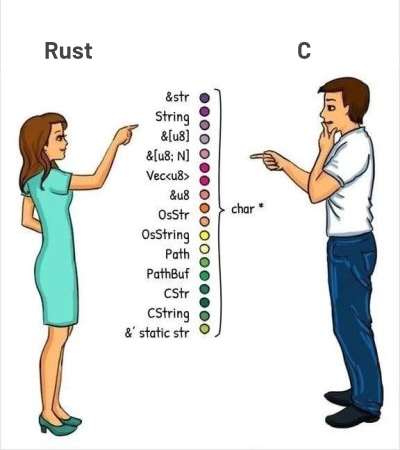Personally, I have nothing against the emergence of new programming languages. This is cool:
- the industry does not stand still
- competition allows existing languages to develop and borrow features from new ones
- developers have the opportunity to learn new things while avoiding burnout
- there is a choice for beginners
- there is a choice for specific tasks
But why do most people dislike the C language so much? But it remains the fastest among high-level languages. Who benefits from C being suppressed and attempts being made to replace him? I think there is only one answer - companies. Not developers. Developers are already reproducing the opinion imposed on them by the market. Under the influence of hype and the opinions of others, they form the idea that C is a useless language. And most importantly, oh my god, he’s unsafe. Memory usage. But you as a programmer are (and must be) responsible for the code you write, not a language. And the one way not to do bugs - not doing them.
Personally, I also like the Nim language. Its performance is comparable to C, but its syntax and elegance are more modern.
And in general, I’m not against new languages, it’s a matter of taste. But when you learn a language, write in it for a while, and then realize that you are burning out 10 times faster than before, you realize the cost of memory safety.
This is that cost:



Oh, Nim is possibly even a better example because it is “transpiled” rather than compiled, meaning the compiler actually generates C or C++ code. You can then compile that with whatever compiler you want. However, I don’t know of any major projects in Nim to compare against ones in C, C++, Rust, etc.
Edit: and Zig should be extremely efficient as well.
https://github.com/ringabout/awesome-nim